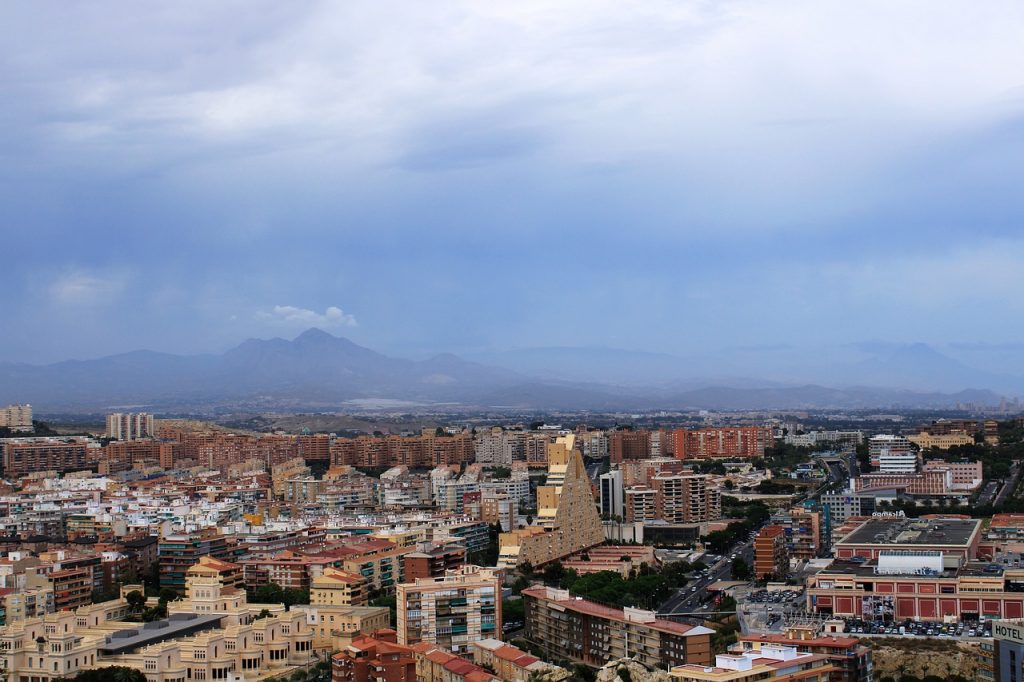Nestled along the scenic coastline of the Mediterranean Sea lies Denia, a vibrant town that embodies the charm and allure of Spain's eastern shore. Often the subject of geographic curiosity, Denia is frequently questioned regarding its administrative allegiance: Is it in Alicante or Valencia? This article delves into the heart of this query, exploring Denia's geographical, administrative, and cultural connections to provide a comprehensive understanding.
Geographical Setting
Denia is strategically positioned on the northern edge of the Alicante province, serving as a gateway between the Costa Blanca and the Costa del Azahar. Its geographical coordinates place it closer to Valencia city than to Alicante city, sparking initial confusion about its administrative location. The town is embraced by the Montgó Mountain to the north, which has been declared a Natural Park, and faces the Balearic Sea to the east. This unique positioning not only offers breathtaking landscapes but also influences Denia's climate, culture, and lifestyle.
Administrative Affiliation
Administratively, Denia is a part of the Alicante province, which is one of the three provinces forming the Valencian Community, alongside Valencia and Castellón. This clarification is crucial: while Denia is physically closer to Valencia city, it operates under the jurisdiction of the Alicante province. This governance structure means that Denia shares its provincial allegiances with other prominent towns of the Costa Blanca, such as Benidorm, Calpe, and Altea, rather than those of the Costa del Azahar, which are under the province of Valencia.
Historical Context
To understand Denia's current administrative status, a brief look into its history is indispensable. Denia has been a site of significant historical importance due to its strategic maritime position. It has been occupied and influenced by various civilizations, including the Romans, Muslims, and Christians, each leaving a lasting imprint on the town's cultural and architectural heritage. In medieval times, Denia was part of the Taifa of Denia, a Muslim kingdom that extended its influence across the maritime routes of the Mediterranean. Its later incorporation into the Christian Kingdom of Valencia during the Reconquista further complicated its historical ties, blending a rich tapestry of cultural influences that is evident in its traditions and festivities.
Cultural Connections
Culturally, Denia shares a profound connection with both Alicante and Valencia. It celebrates the Valencian Community's traditions with fervor, participating in festivals such as the Fallas and the Bonfires of Saint John, which are deeply rooted in the wider Valencian culture. The local cuisine also reflects this blend, where Denia's famous red shrimp finds its place among the staples of the Mediterranean diet, alongside rice dishes that echo the Valencian affinity for paellas and arroces. Moreover, the Valencian language, a variant of Catalan, is widely spoken in Denia, further cementing its cultural ties to the broader Valencian Community.
Economic and Social Ties
Economically and socially, Denia benefits from and contributes to both the Alicante and Valencia provinces. Its port is a critical hub for transportation and trade, offering ferry connections to the Balearic Islands and facilitating a vibrant fishing industry. The town's economy also heavily relies on tourism, drawing visitors to its historical sites, beaches, and gastronomic offerings. While Denia operates within the economic policies and frameworks set by the Alicante province, its proximity to Valencia allows for a dynamic interchange of goods, services, and cultural exchange, enhancing its role as a bridge between the two provinces.
Conclusion
In conclusion, while Denia is administratively part of the Alicante province, its heart beats in unison with the entire Valencian Community. Its geographical, historical, and cultural facets weave a complex narrative that transcends simple administrative boundaries, reflecting the rich mosaic of Spanish regional identities. Denia is a microcosm of the Mediterranean spirit, embodying the warmth, diversity, and vibrancy that characterize this enchanting region of Spain. So, to answer the question: Is Denia in Alicante or Valencia? Denia is in Alicante by administration, but in essence, it belongs to the Valencian Community, embracing the heritage, culture, and spirit of both Alicante and Valencia.
Frequently Asked Questions (FAQs)
Is Denia located in the province of Alicante or Valencia?
Denia is administratively part of the Alicante province, despite its close geographical proximity to Valencia city
What is the cultural significance of Denia in the Valencian Community?
Denia boasts a rich cultural heritage, celebrating traditional Valencian festivals and cuisine, showcasing its deep connections to the Valencian Community's traditions and lifestyle
Can you speak Valencian in Denia?
Yes, Valencian, a variant of Catalan, is widely spoken in Denia, reflecting its cultural ties to the broader Valencian Community
What are some must-visit attractions in Denia?
Key attractions include the Montgó Natural Park, Denia Castle, the Marina, and its beautiful Mediterranean beaches, each offering a unique glimpse into Denia's natural beauty and historical significance
How does Denia's economy benefit from its geographical location?
Denia's economy thrives on tourism, its bustling port facilitating ferry connections to the Balearic Islands, and a vibrant fishing industry, underscoring its role as a crucial economic hub within the Alicante province
